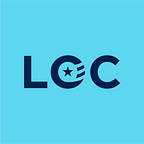Jury Selection Begins in George Floyd Case
Leaders of Color alum Will Snowden started The Juror Project to change the makeup of juries to better represent the American population and the communities most commonly accused. This Leaders of Color blog will often share long-form pieces from our alumni network. This piece was originally shared on Will’s LinkedIn here.
“Did you, or someone close to you, participate in any of the demonstrations or marches against police brutality that took place in Minneapolis after George Floyd’s death? If you participated, did you carry a sign? What did it say?”
Depending on how you answered this question could mean whether or not you’d make it on the jury in the murder trial of former Minneapolis police officer Derek Chauvin. These questions were one of many in the sixteen-page juror questionnaire designed to help assess who would, or would not, be a good juror for the case.
The killing of George Floyd last summer sparked demonstrations not only around the country, but around the world. In the first 8 months of 2020, police killed 164 Black people. And as people marched on, it became clear there was a disgust, disbelief, and disdain for yet another Black person being killed by police. Ten months later, our criminal legal system is being put to the test.
This will be one of the most-watched trials of 2021 and it all starts with who is on the jury. In Hennepin County, where the trial is taking place, they use lists of registered voters, licensed drivers, and State identification card holders to summon jurors. But, these lists have nothing to do with the qualifications to sit on a jury so why use them? Why not also use utility bills? Tax assessor lists? Or other lists that cast a wider, more inclusive net? These limited lists restrict who gets summonsed to makeup the jury.
The problem of lack of diversity on our juries isn’t new. When I was a public defender in New Orleans, the lack of diversity contributed to the lack of fairness in the courtroom which is why I started the Juror Project. When it comes to civic duties, jury service rarely gets discussed. And when it does, it is usually in the context of how to get out of it.
But when I hear people trying to get out of jury duty, I ask them why? The reasons range from not having the time to not trusting the system. And I get it, people don’t want to wait in a juror lounge with cold coffee and crappy Wi-Fi especially when your job doesn’t compensate you for missing work. However, I need people to know there is a lot of power in the jury box that too frequently gets untapped. Perhaps, that is intentional or maybe it is simply time to update the design of our system. Regardless, reforming our criminal legal system is a collaborative process and we all can play a role as jurors.
As we begin to watch the trial of Derek Chauvin let’s keep an eye on the jury. Hennepin County is approximately 68% white, 14% Black, 8% Asian, and 7% Latino which means we should see some people of color on the jury. This is important because research teaches us that when we have more diversity a more objective decision can be made.
There is no doubt that the verdict of this case is going to have a nation-wide impact. The next time you get a jury summons in the mail, show up because you never know what trial you may hear.
#jurydutyismyduty
